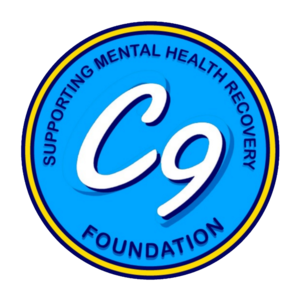Pic: progress.im
So, what is Bipolar Disorder?
Bipolar disorder is a mental illness marked by extreme shifts in mood. Symptoms can include an extremely elevated mood called mania. They can also include episodes of depression. Bipolar disorder is also known as bipolar disease or manic depression.
People with bipolar disorder may have trouble managing everyday life tasks at school or work, or maintaining relationships. There’s no cure, but there are many treatment options available that can help to manage the symptoms.
Some Stats:
Bipolar is one of the most common long-term conditions diagnosed in the UK, with 1.3 million people currently diagnosed. This equates to one in 50 people.
Recent research suggests as many as 5% of us are on the bipolar spectrum.
There are almost as many people diagnosed with bipolar as there are diagnosed with cancer, equating to around 2.4% of the population. This more than twice as common as epilepsy, autism & dementia (at 0.8%).
Bipolar increases an individual's risk of suicide by up to 20 times.
It is estimated that at least 800 people with bipolar take their lives every year.
The World Health Organisation (WHO) identifies bipolar as one of the top causes of lost years of life and health in 15 to 44 year olds.
Just 21% of people with a long-term mental health condition are in employment.
90% of people with bipolar had told their employer about their condition, with 24% admitting they regretted this decision.
Symptoms:
Bipolar disorder is characterised by extreme mood swings. These can range from extreme highs (mania) to extreme lows (depression).
Mania
The manic phase of bipolar disorder may include:
feeling very happy, elated or overjoyed
talking very quickly
feeling full of energy
feeling self-important
feeling full of great new ideas and having important plans
being easily distracted
being easily irritated or agitated
being delusional, having hallucinations and disturbed or illogical thinking
not feeling like sleeping
not eating
doing things that often have disastrous consequences – such as spending large sums of money on expensive and sometimes unaffordable items
making decisions or saying things that are out of character and that others see as being risky or harmful
Depression
During a period of depression, symptoms may include:
feeling sad, hopeless or irritable most of the time
lacking energy
difficulty concentrating and remembering things
loss of interest in everyday activities
feelings of emptiness or worthlessness
feelings of guilt and despair
feeling pessimistic about everything
self-doubt
being delusional, having hallucinations and disturbed or illogical thinking
lack of appetite
difficulty sleeping
waking up early
suicidal thoughts
Treatment:
If a person is not treated, episodes of bipolar-related mania can last for between 3 and 6 months.
Episodes of depression tend to last longer, often 6 to 12 months.
But with effective treatment, episodes usually improve within about 3 months.
Most people with bipolar disorder can be treated using a combination of different treatments.
These can include 1 or more of the following:
medicine to prevent episodes of mania and depression – these are known as mood stabilisers, and you take them every day on a long-term basis
medicine to treat the main symptoms of depression and mania when they happen
learning to recognise the triggers and signs of an episode of depression or mania
psychological treatment – such as talking therapies, which help you deal with depression and provide advice on how to improve relationships
lifestyle advice – such as doing regular exercise, planning activities you enjoy that give you a sense of achievement, and advice on improving your diet and getting more sleep
Most people with bipolar disorder can receive most of their treatment without having to stay in hospital.
But hospital treatment may be needed if your symptoms are severe or you're being treated under the Mental Health Act, as there's a danger you may self-harm or hurt others.
In some circumstances, you could have treatment in a day hospital and return home at night.


